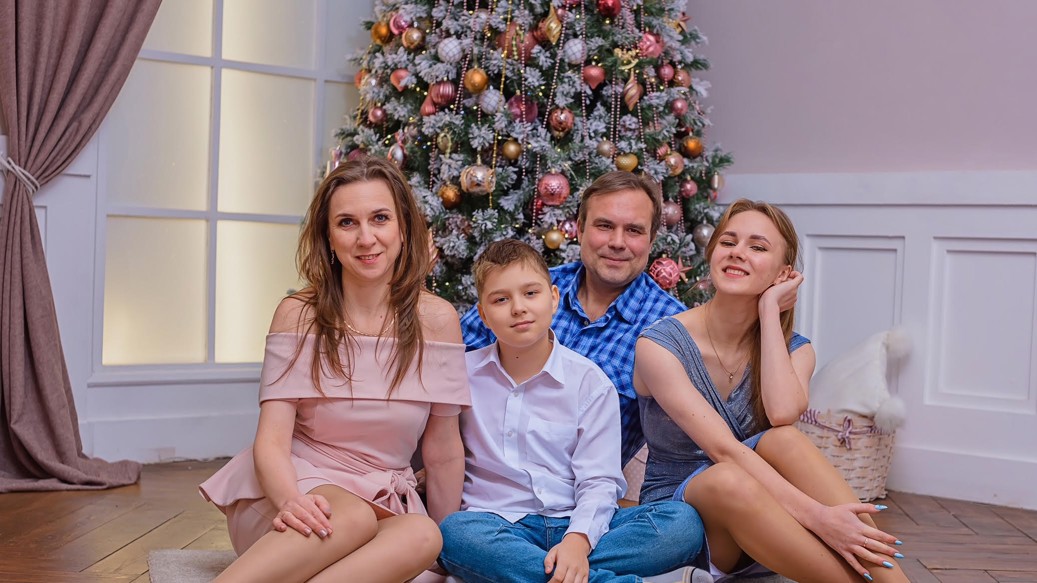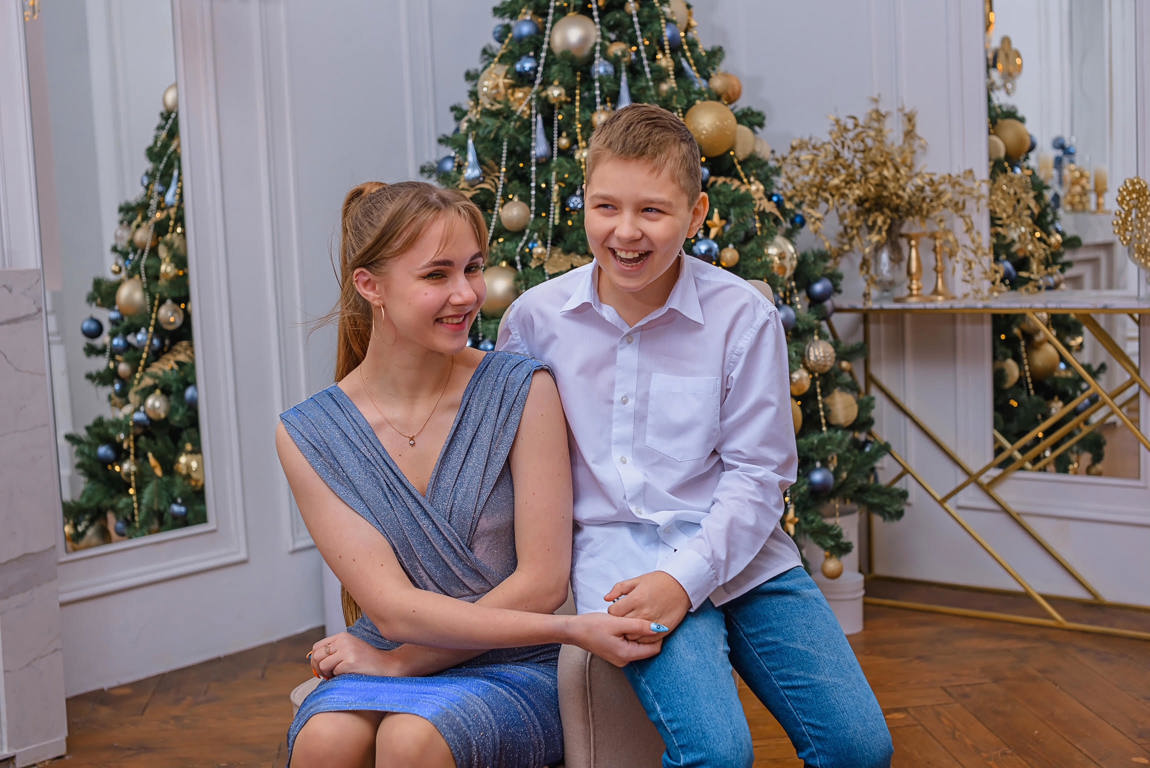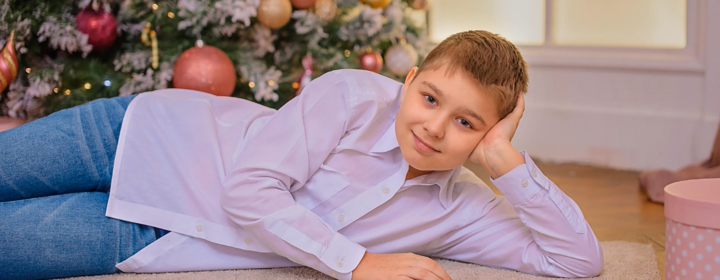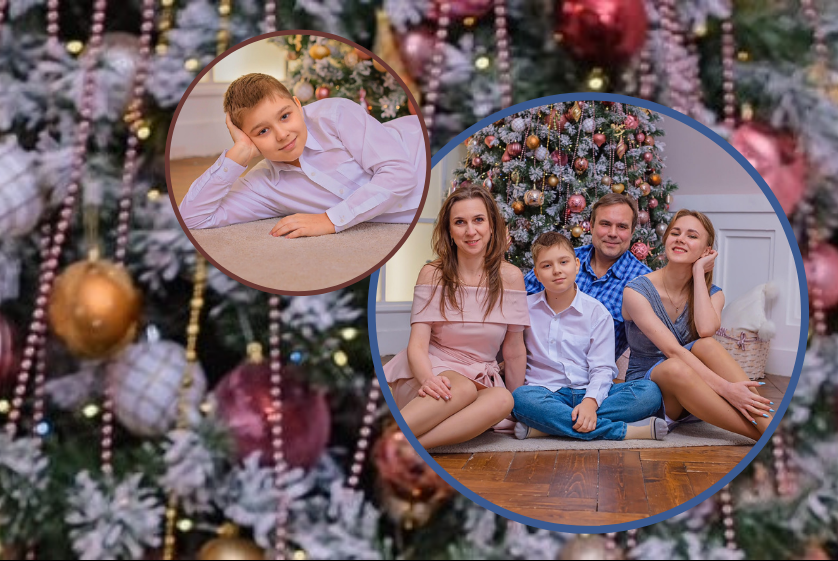Time for our anniversary feature, Power of 10, which highlights the impact we’ve made in our 10 years helping children beat cancer. Today, on the eve of International Children’s Day, we are sharing a story of recovery told by Olga Shlichkova, the mother of our former patient Egor.
Click to read Olga’s interview in Russian
Egor fell ill with acute lymphoblastic leukaemia in 2013 aged only two years old. His treatment required a highly expensive medicine, Erwinase, which is unavailable in Russia. By that time Gift of Life had been providing foreign medications to children and young people with cancer in Russian clinics for two years and Erwinase was one for the most common or often used drug for patients with leukaemia. Its cost is out of reach for an ordinary Russian family but thanks to the generosity of our donors Gift of Life was able to help. This combined effort allowed for a tenfold result – Egor has completely recovered!
Olga, your family has gone through a very difficult ordeal – the serious illness of a child. How did you feel when you learned of Egor’s diagnosis?
At first, I had no idea what leukaemia was, even the term was foreign to me. I just guessed that it was something bad and asked: “Is it blood cancer?” When the doctor confirmed it, I said something that encapsulated my despair; “there are no reasons to live anymore.” The doctor immediately replied that everything was treatable, he was really positive and supportive from the start and gave us hope. But at first, this feeling that I had lost any reason to live overwhelmed me and overshadowed everything. The only thought that kept me going was that “my son is with me right now, and that’s all that matters.”
Egor underwent therapy in his hometown, Ryazan. What difficulties did you face during the treatment?
According to the treatment protocol, we were prescribed Asparaginase, which is commonly used to treat leukaemia in Russia. But during the fifth drip, Egor had a severe allergic reaction – Quincke’s edema. We had to immediately stop the treatment, and there was nothing that could be done to allow us to continue with it. The only possible alternative solution was to use the foreign Erwinase. There’s no treatment or recovery without it as you cannot violate the protocol, or the risk of relapse is huge. Without this drug, the chance that Egor would be healthy was miniscule. When you need a foreign medicine not provided by the state, the first thing doctors ask is if the family can buy it on their own. We needed almost a million rubles (£16,000 at the 2013 exchange rate – ed.). Very few people may be able to afford it without help, to pay for it on their own, and we don’t have that kind of money. And so, we turned to Gift of Life for help.
Doing the maths; if I am in the hospital with my child, then only my husband can work in our family, and if his monthly salary is 50,000 rubles (about £500), then how many years do you need to save up to be able to afford this medicine? It’s an enormous amount of money, considering that you still need to have enough left over to live with two children. Even if you sell your only property, how? Apartments in Ryazan don’t cost that much, and then you still need somewhere to live with your children. In this situation anyone would be ready to sell everything, but we had nothing.
 Gift of Life paid for Erwinase for Egor from private donations. Thus, together, our donors were able to save his life. Why is it important to help others, even complete strangers?
Gift of Life paid for Erwinase for Egor from private donations. Thus, together, our donors were able to save his life. Why is it important to help others, even complete strangers?
There are times when people think about what’s important in life, looking for something worth living for. I believe that one of the purest moral missions is helping to save someone’s life, especially the life of a child. I also know that all good things will definitely come back to you hundredfold! That’s why it’s so important to help: you can find yourself, and your purpose in life.
You have an eldest daughter Tatiana, Egor’s sister. How did she deal with this difficult period?
Egor’s treatment was so difficult we were on the brink of death three separate times. My thoughts were incredibly disturbing. But Tatiana always said that we will cope and cure Egor. After the onset of her brother’s illness, Tatiana immediately grew into an adult, although she was only 11 years old at the time, almost like Egor now. My son and I were constantly in the hospital, and Dad visited us every evening, bringing medicines and everything we needed; but Tatiana was alone. Thankfully, her grandmother came and cooked for her. When my daughter had her primary school graduation party, all her peers were so happy, celebrating and launching balloons into the sky, but she just stood there and cried.
This all instantly made Tatiana more mature, and she even regarded Egor with a sense of parental care and protectiveness. She still cares about her brother as if he was her own son.
 What was the most difficult for Egor and for you afterwards, when you had to adapt to everyday life outside the hospital?
What was the most difficult for Egor and for you afterwards, when you had to adapt to everyday life outside the hospital?
At first there was a fear of being left without medication. As long as you take it, there is a guarantee that everything is fine. And then the unknown, God forbid, the uncertainty over what happens next. The fear is genuinely paralyzing.
The next frontier is adapting to society. When your child has experienced something like this, naturally, you can sometimes be more protective than you need to be. This is strikingly obvious and can cause misunderstanding among others. Some strangers even try to give unsolicited advice. And the thought that you and your child will not be able, at least at first, to live as if nothing had happened is vastly disheartening. Of course, this passes eventually, you adapt and accept your new life, which has actually improved in some ways. And you suddenly begin to appreciate what other people don’t even notice.
Are you talking about the eternal values that came to the fore after Egor’s recovery?
Yes, you start to appreciate the fact that you are alive, because everything can change at any moment. You are alive today, you see your beloved children next to you, and you know that everything is fine right now – and you appreciate what you have, the simplest things, just an ordinary but comfortable life.
And you really treasure your family and loved ones who braved this fear and pain with you. Compared to fighting and being victorious over such a terrible disease, everyday problems are not at all important. The main thing is that we have each other, and we are ready to fight for a common goal.
Egor is nearly finishing primary school. What subjects does he like?
Mathematics! Also, Music and PE. Russian and English are less favourite, and sometimes Egor struggles with them. But he is persistent, he studies, and right now everything is great at school. In the beginning, when he was in the first year, there were difficulties with adapting to his new social sphere, since he didn’t go to pre-school because of his illness, and everything was new to him. But children acclimatise quickly, and now he is the same as any other child: he is sociable, he enjoys playing with friends, and leads a full life without restrictions. We have even begun to gradually forget about the trying times when we battled this disease. It’s in the past now.
 Sometimes, after long-term treatment, parents don’t get involved in sports activities, although haematologists allow and even recommend recovered children to lead an active lifestyle. How is Egor doing with sports?
Sometimes, after long-term treatment, parents don’t get involved in sports activities, although haematologists allow and even recommend recovered children to lead an active lifestyle. How is Egor doing with sports?
Egor does hapkido, which is a Korean martial art; we are definitely raising a man! He was born to be a fighter.
And besides sports, he really likes music, if you can imagine! He loves to sing with us. Of course, he didn’t go to kindergarten, so when he came home after his first school music lesson, he was so surprised and said: “Mum, you have no idea what we were doing. We were singing! “
What would you say to the parents who are going through this difficult experience of fighting cancer together with their children?
I would like everyone to be patient and pray that our children will stay with us. Cancer can now be treated successfully. You must always believe in this and dismiss any negative thoughts. You can simply repeat every day: “We can handle it; we will be healthy again” – and everything will be fine!
For 10 years now, Gift of Life donors and partners have been supporting the work of the foundation and helping children recover their healthy life. What would you say to these wonderful people?
To everyone who has been supportive, a million of bows and gratitude from the bottom of my heart for the assistance and care for our children. I will never forget what you did for my son and for our entire family, thank you so very much!
#GOLpowerof10
To support our work and help children like Egor beat cancer, donate now.
Translation: Karina Zakharyan

